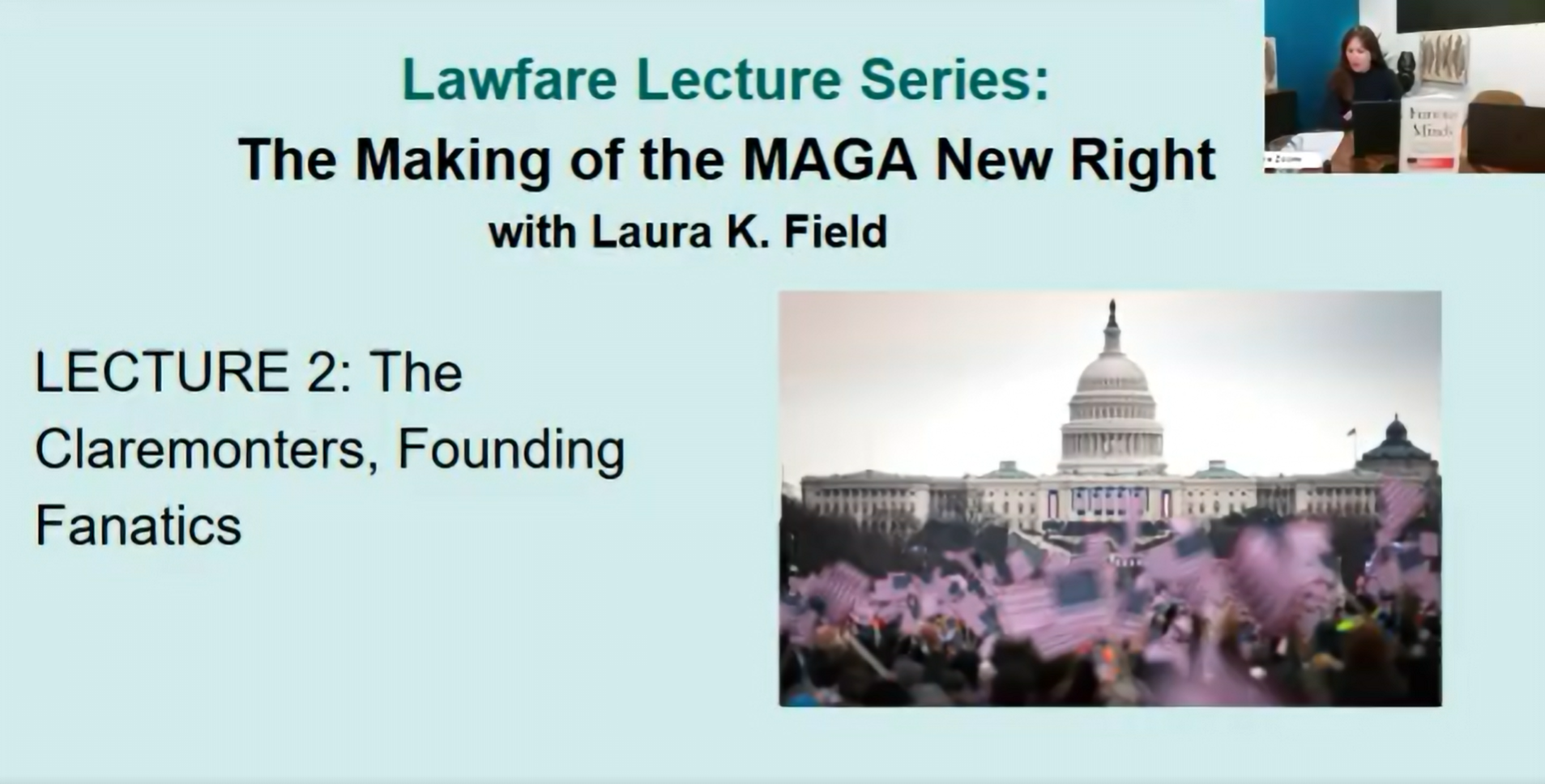The Week That Was: All of Lawfare In One Post
Although this week’s most noteworthy leaks came out of the New Jersey Governor’s office, Lawfare is still analyzing the ripples of earlier federal disclosures.
Raffaela pointed us to two statements out of the Office of the DNI, a letter reassuring the public that DNI Clapper never intended to lie to the public and an announcement that the FISC has renewed the telephony metadata collection program yet again.
Published by The Lawfare Institute
in Cooperation With

Although this week’s most noteworthy leaks came out of the New Jersey Governor’s office, Lawfare is still analyzing the ripples of earlier federal disclosures.
Raffaela pointed us to two statements out of the Office of the DNI, a letter reassuring the public that DNI Clapper never intended to lie to the public and an announcement that the FISC has renewed the telephony metadata collection program yet again. Paul linked to a useful National Review summary of Snowden leaks relating to US surveillance abroad. And Jack wondered whether perhaps the “worst that is yet to come” in the Snowden files will reveal the activities of our joint special forces. And Bobby followed up, wondering if the Washington Post disclosure of special forces operatives in Somalia was a preemptive disclosure prior to a Snowden-leaked document.
Lawfare’s coverage and analysis of the President Review Group’s report continues as well. Ben flagged the FBI’s objections to the PRG’s proposals for National Security Letter reform and he soldiered on with Parts IV, V, VI, and VII of his “Reviewing the Review” series. In IV, Ben expressed moderate skepticism about applying the Privacy Act to non-US persons as DHS does, and urged the Government to insist on reciprocity rather than playing “handmaiden to European hypocrisy.” He also shared a reply to the post from DHS’s former Chief Privacy Officer Hugo Teufell III. Teufel, who led the DHS initiative to apply the Privacy Act to non-US persons, explains precisely how the federal government could do so, and explains why he supports doing it.
In Part V, Ben largely embraced the PRG’s recommendation that only high-level decision-makers should make the sensitive decision to spy on foreign leaders. In Part VI, he cautioned against splitting the defensive and offensive functions of NSA and delivered a mixed review of the PRG’s proposed reforms of the Privacy and Civil Liberties Oversight Board and the Foreign Intelligence Surveillance Court. Finally, in Part VII, he treated the entirety of Chapter VII of the Review Group report as pretty trivial. For those who will slit their wrists if this series continues much longer, good news: Only a few more recommendations to go.
In other news, Raffaela drew our attention to Wednesday’s Senate confirmation hearing for John Carlin, President Obama’s pick to lead the Department of Justice’s National Security Division.
Guantanamo developments continue to . . . develop: Wells pointed us to a DOD announcement that Guantanamo detainee Mahmud Abd Al Aziz Al Mujahid is eligible for transfer back to Yemen following a Periodic Review Board hearing. At the same time, Jane updated us on motions in Aamer v. Obama, the force-feeding case on appeal before the D.C. Circuit, and suggested that it is part of a larger battle over transparency at Guantanamo. And while we’re on the subject, Wells also brought us some British thoughts, in the voice of Robin Simcox of the Henry Jackson Society, on how President Obama should explain why all terrorist “dangerous guys” can’t simply be prosecuted.
In Alien Tort Statute news: John pointed us to the DOJ’s amicus brief urging the Second Circuit to affirm the dismissal of an ATS lawsuit against former Mexican President (and current Yale professor) Ernesto Zedillo based on the State Department’s suggestion of immunity. He noted two interesting things: First, the brief asserts that the case is governed by Dichter, thereby pushing back against the Fourth Circuit’s creation of a categorical jus cogens exception for immunity in Samantar, and second, the government makes a novel claim that it may use non-public information in issuing its statement of immunity. John also hopes that most human rights activists realize that this suit is a “vexatious” use of the ATS/TVPA.
We’ve also been thinking a bit about counter-insurgency this week: the latest installment of our podcast featured retired General Stanley McChrystal and Kristina Talbert-Slagle of Yale on what fighting AIDS can teach us about fighting insurgencies. And we brought you Daniel Byman’s rather depressing foreign policy essay, “2013 – The Year We Lost Iraq.”
Although we know that the talk of this town has been former Secretary of Defense Robert Gates’ memoir this week, another Lawfare-related book dropped this week, and Paul linked to a “must read” Politico excerpt from CIA lawyer John Rizzo’s new book, Company Man. In the excerpt, Rizzo praises President Bush for claiming personal responsibility for EIT authorizations---authorizations that Rizzo doubts Bush knew about altogether.
And finally, on the lighter side, Ken proposed modestly (and jokingly) a novel way of dealing with the NSA's legal issues.
And that was the week that was.
Yishai Schwartz is a third-year student at Yale Law School. Previously, he was an associate editor at Lawfare and a reporter-researcher for The New Republic. He holds a BA from Yale in philosophy and religious studies.



.png?sfvrsn=bd249d6d_5)

